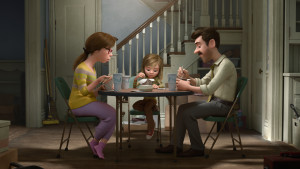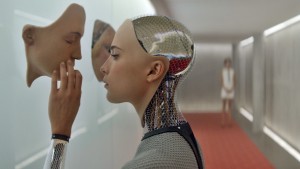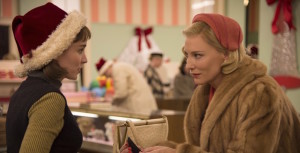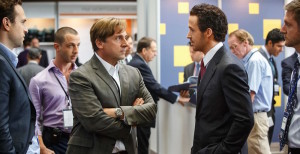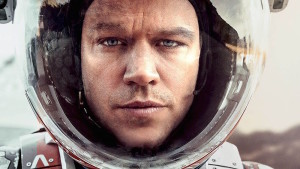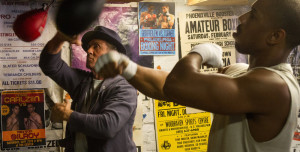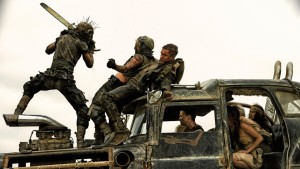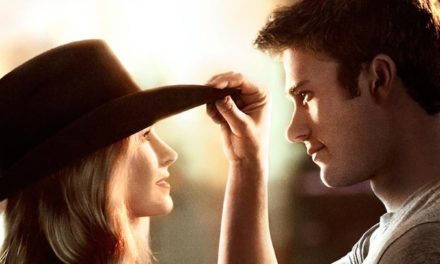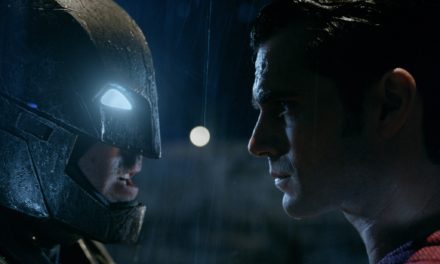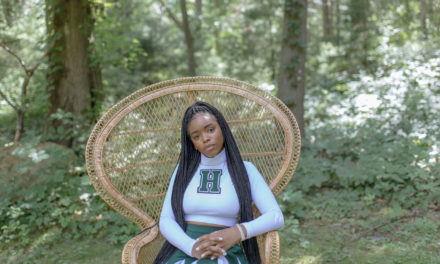We’ve come to the end of the year, so now it’s time to do that venerable and all-too common critic activity and give you my top 10 films of the year. But in an even more cliché manner, I want to tell you that 2015 was a phenomenal year in film and that this was an incredibly hard list to put together.
Any number of films could have broached the five runners-up below, and honestly, the second through tenth films were a huge struggle to order and could change at any moment.There’s just so much to love, think and enjoy about each of the films on this list.
Each of these films represent something about 2015 in film that made it one of the best I’ve seen in a while and the perfect cap-off to my first year as a film critic.
10. Mistress America
Mistress America (Dir. Noah Baumbach) is a film which feels as eminently classic as it does modern. A story of millennial disaffection and self-discovery told through a pitch-perfect screwball comedy form, Mistress America is a seemingly effortless and light confection of a film, yet one that reveals a deep heart and soul when you peel back the layers.
This is in no small part due to the work of the two leads carrying the film, Greta Gerwig and Lola Kirke. Gerwig is an effusive and elusive real-life reflection of that seemingly-endlessly capable person whom you discover is barely keeping it together, as if they’re held together by scotch tape; she’s the soul of this film. Counterbalancing her perfectly is the beating heart, Kirke. Kirke is eminently watchable and instantly likeable, providing an amazing foundation within an incredibly well-defined character.
What director/writer Noah Baumbach and his cowriter/muse Greta Gerwig should be applauded for is finding a take on millennial life that feels neither condemnatory nor celebratory. It’s simply what it is to be in that transitory early-20s period, in all its flaws and all its wonders. And for finding one of the truest portrayals of the mindset of a writer seen in a film. And it’s done in a film of near-flawless construction that seems almost too easy.
9. Inside Out
Pixar’s gift, besides an immaculate sense of storytelling that shines through even in their lesser films, is their ability and willingness to tackle heavy subjects in a way that both challenges adults and meets kids. On this criteria, Inside Out (Dir. Pete Docter and Ronnie Del Carmen) is perhaps one of Pixar’s best films, a beautiful meditation on the importance of sadness.
Inside Out is also gifted with one of Pixar’s best scripts, which maintains an emotional weight and narrative propulsion throughout the whole of its runtime, avoiding what is so often the Pixar problem of a steep drop-off after the brilliant first act. Instead, a small story told in a very large way keeps one gripped on the journey through Riley’s head. The film also holds a cast of great characters, including the surprisingly heartstring-pulling Bing Bong (Richard Kind) and Sadness (Phyllis Smith), who absolutely runs away with the film.
Inside Out is perhaps one of our most important films of 2015. Its lesson of empathy and the beauty of human emotion is one shared by many films in 2015, but perhaps expressed nowhere more eloquently than in this colorful adventure. It’s a film that understands that there is no smaller story than change for a child, but there is no bigger emotion and bigger drama, and that the lesson is immensely important.
8. Ex Machina
Lest we too often think that sci-fi is solely restricted to space opera and heady expensive concepts, Ex Machina (Dir. Alex Garland) comes along to remind us how brilliant the genre can be when it’s stripped of blockbuster budgets. This small chamber piece expresses fear, but not about technology, as is common with stories like this. Instead, it’s a way for us to reflect on our fears about being human, what creates humanity and even what it means to be alive.
This is crafted through a tightly constructed narrative by master screenwriter and first-time director Alex Garland. Garland creates a tense mind-bender of a film functionally about the battle between three different consciousnesses, expressing heady ideas in simple ways and leaving the audience as unsettled as they are satisfied.
His work is amazingly expressed through the three actors he chose for the three roles of the script. Domhnall Gleeson as the normal man thrust into this world in a thankless but well-done audience anchor role, Oscar Isaac as an inventor and businessman with dark personal aims in a legitimately left-field and constantly surprising performance and Alicia Vikander as the artificial intelligence that becomes the central point of the film. Vikander announces herself in Ex Machina as an actress of supreme control and eminent watchability.
Ex Machina is one of 2015’s most thoughtful and interesting films, but don’t let that sell it short. It’s also funny, thrilling and even frightening in equal measures; it’s a thrill-ride with ideas, my favorite kind of film.
7. Carol
For this film, a look is all it takes. A stolen glance between Carol (Cate Blanchett) and Therese (Rooney Mara) says volumes, says the world. Carol (Dir. Todd Haynes) is a story of love in a time when it was forbidden, of one woman finding herself in another, and of intentions unknown.
It’s a film that’s absolutely beautiful on every level. Director Todd Haynes seems to know exactly what to do, exactly how to turn the eye and to make the audience feel the gazes of our characters. And he does it in an absolutely gorgeous looking film; every frame is dripping with sumptuous period detail. And he does it with amazing actors. Obviously, Blanchett continues to prove her reputation as one of our best working actresses, but it’s Mara who steals the show with her immensely interesting and engaging portrayal of a woman jumping into a world she’s never been in before.
Carol is a film that crafts a world that’s initially difficult to immerse yourself in. It’s cold, even distant. But those who can connect, who can understand the story being crafted, will find themselves in a beautiful and passionate romance, easy to get lost in.
6. The Big Short
In the long history of activist films, many take a measured approach, laying out the facts and pleading for understanding. Some are a brick through the window, jarring you out of your rest and into action. The Big Short (Dir. Adam McKay) is brilliant because it is both in equal measures. It is one of 2015’s densest and most fact-based films but it knows that nothing wakes you up like a fist to the face.
This is largely thanks to the work of Adam McKay, the surprisingly virtuosic director who until now has largely dwelled in the realm of improv-heavy comedies like Anchorman and Step Brothers. Here, McKay wields his camera like a grenade, scattering his influences, from internet sketch videos to hip-hop videos to montage, across the true-story (well, largely, there’s a lot of name change and composite going on, as well as narrative conveniences that the film is more than willing to mention) rager he crafts.
Everything and everyone is at the service of McKay’s story, a righteously furious howl about the 2008 credit and housing crisis. It’s a howl against a system and a culture that would allow the exploitation of the least of us for profit and a system and culture that would let those responsible get away with it. It’s a story that throws every sensory overload at your system, a film that is haltingly real and funny and even meta all at the service of one demand. That you wake up. And that we can’t let them get away with this again.
5. What We Do in the Shadows
I’ve probably seen this film more than any other one on this list, or any other I saw in 2015. And that will probably remain true for the foreseeable future. What exactly about this film is so endlessly enjoyable?
One thing is the heart. As odd as that is to say on a story about vampire roommates, it’s the warmth and affection that What We Do in the Shadows (Dir. Jermaine Clement and Taika Waititi) has for the oddballs that populate its story. Each of them is given a wealth of character and history. Viago (Taika Waititi) owns the title of my favorite, as a bit of an uptight “head of house,” but any of them elicit immense empathy and enjoyment every time.
And the other is the laughs. This is one of the absolute funniest films of the year. Not only is this the most quotable film I’ve seen in some time, but every character occupies a specific and hilarious physicality that creates new surprises every time I watch it. The mockumentary format crafts much of the humor, an impeccably directed example of the form that allows every joke to breathe in the proper ways.
What We Do in the Shadows is simply phenomenal comedy, and a film that will likely live with me, and anyone who views it, for a very long time.
4. The Martian
The best films take hold of us and move beyond escapism to aspiration. The best films find a way to tap into the human spirit and inspire us to action. I believe that The Martian (Dir. Ridley Scott) is that kind of film. Its tale of the perseverance of the human spirit and how the simple power of the human mind thinking critically will inspire future generations to take up the cause of science and space travel. I fully believe the next generation of astronauts will cite The Martian as the film that moved them to action.
But moreover, it’s an impeccably made film. A potboiler focused on the problems Mark Watney (Matt Damon) must overcome to get off planet Mars,the struggle of his crew to rescue him and those on Earth to save him weaves perfectly in and out of the three storylines to create an absolute thrill-ride of the soul. Damon in particular turns in a career-defining performance as Watney, an instantly likeable astronaut who will have you on your feet cheering at his successes and tearing up at his struggles.
The Martian is an absolutely jaw-dropping story of victory and hope. It’s corny, but in the most convicted of ways. The Martian is an experience, the kind of film you strap yourself in for and leave feeling just a little different.
3. Creed
This is how you do a franchise reboot.
Following up Rocky, one of the most classic underdog tales in cinema, is absolutely no small challenge. But young director Ryan Coogler proved that not only was he capable of rising to it, but excelling at it. To be fair, so was everyone else involved.
Creed in every facet is a well-made film. Coogler rewrites the rules for the way we film boxing, an inherently cinematic sport, in two amazing sequences, particularly a one-take fight sequence that doesn’t even register as such until halfway through. Michael B. Jordan’s Adonis is a hotheaded, thoughtful and loveable scrapper more than able to take the reins from Sylvester Stallone’s Rocky, who appears in this film and turns in his best performance.
But perhaps what works the most about Creed is how pitch perfect it gets the concept of the recent trend of rebootquels. It respects and reveres while never assuming there’s no changes to be made, and knows that it can put its own stamp on what comes next. It earns what it takes and creates so much new. It expands the universe in a way that absolutely works.
And best of all, it simply works on a gut level. Creed is heart-wrenching and stand-up-in-your-seat-and-cheer exciting, often in back-to-back scenes. It’s easy to instantly connect with it, and it may feature the greatest musical cue of the year and possibly the decade. It’s a film that carves its own path out of what came before. It’s a Rocky sequel, yes, but what’s far more important is that it’s Creed.
2. Anomalisa
Anomalisa (Dir. Charlie Kaufman and Duke Johnson) broke my heart. It absolutely tore it in two.
Charlie Kaufman has brought the world, with films like Eternal Sunshine of the Spotless Mind, Adaptation and Synecdoche, New York, incredibly high-concept works that peel back the layers of the human mind to gain an understanding of the way we think and live in the most bizarre ways. Yet, in Anomalisa, perhaps his most bizarre endeavor, Kaufman reaches the deepest and finds the most absolutely human story he’s told yet.
It’s a story that seems ridiculous to tell through animation, a man (David Thewlis) in a hotel on a business trip trying to cheat on his wife and quickly meeting someone (Jennifer Jason Leigh) who is so much more. Yet, in one of the greatest examples of form meeting function in film, it becomes quickly clear that there’s no other way to tell this story. Animation gives the freedom of absolute control, limiting our perspective to this man’s head and helping us to understand the psychology in the way no other film could. It’s a film that’s utterly brilliant in its construction and really does make you feel like you’re watching something new happening.
It’s a deep story, one that challenges the notions that loneliness and sorrow are instantly sympathetic and rooted in some noble pain. One that challenges the narratives of disaffected masculinity. Yet it is not a polemic; it’s a film of sweetness and an attempt to understand and to move past. It’s a film of gorgeous details and constructions and it’s a film that knows how to get deep into your soul.
Anomalisa is a film that’s immensely easy to admire for what it is, but if it hits you in just the right way, will leave you never feeling the same again.
1. Mad Max: Fury Road
Mad Max: Fury Road (Dir. George Miller) is pure cinema. The kind of film that I show up to the theater again and again for, the kind of film that shows what this medium I love is absolutely capable of at its best.
The plot itself is simple. It’s point A to point B to point A. But it doesn’t need a damn other thing other than that. It has the best economy of detail since Star Wars, crafting a world that feels lived in, a mythology that feels not created but found. It creates some of the most memorable characters of the year, using just a few simple lines and gestures. It feels as though Imperator Furiosa (Charlize Theron) says less in the whole film than many characters say in single scenes, but we’re given so much through the world and through her performance.
Fury Road understands the visual nature of film, and understands how to speak it better than anyone else. The film is an extended chase sequence of pure practical effect chaos and George Miller conducts this symphony of chaos like a virtuoso. Never is there a moment in the film where you lose track of the action and never is there a moment where he’s not finding something new, not finding some way to escalate the action. And the action is the most inventive and insane and exciting of the year; repeat viewings reveal detail, but the initial viewing is one of the most amazing and thrilling experiences I’ve ever had in a theater.
But don’t let it be thought that Fury Road is simply action. That visual communication also tells one of the year’s most poignant stories. For all its ugliness and violence, Fury Road is a story of hope and redemption. It’s a story of stopping absolute power, and specifically a story of the ruinous nature of misogyny. It is a story of control, and it tells it all without a single monologue. It’s all in the visuals, it’s all in the details.
Fury Road is simply the kind of film that takes a hold of you and you never let go. It’s rare to feel as though you were there for the beginning of a classic, but I know I was there for the future of cinema when I exited that theater on May 15, and I know that I was when I turned my Blu-ray player off on Dec. 31.
Opinion Editor | Brandon Wagner is a College Senior from God Only Knows Where, America studying Film and Media Studies with a minor in Religion. This is his first year for the Wheel, in a likely misguided experiment to be a film critic. When he's not writing on the biggest blockbusters or the films of Spike Jonze or Andrei Tarkovsky or Zack Snyder, he's writing on comedic television, the future of gaming as an art, or the relationship between audience and cinematic experience. In other words, Brandon Wagner has basically nothing else going on but this.



